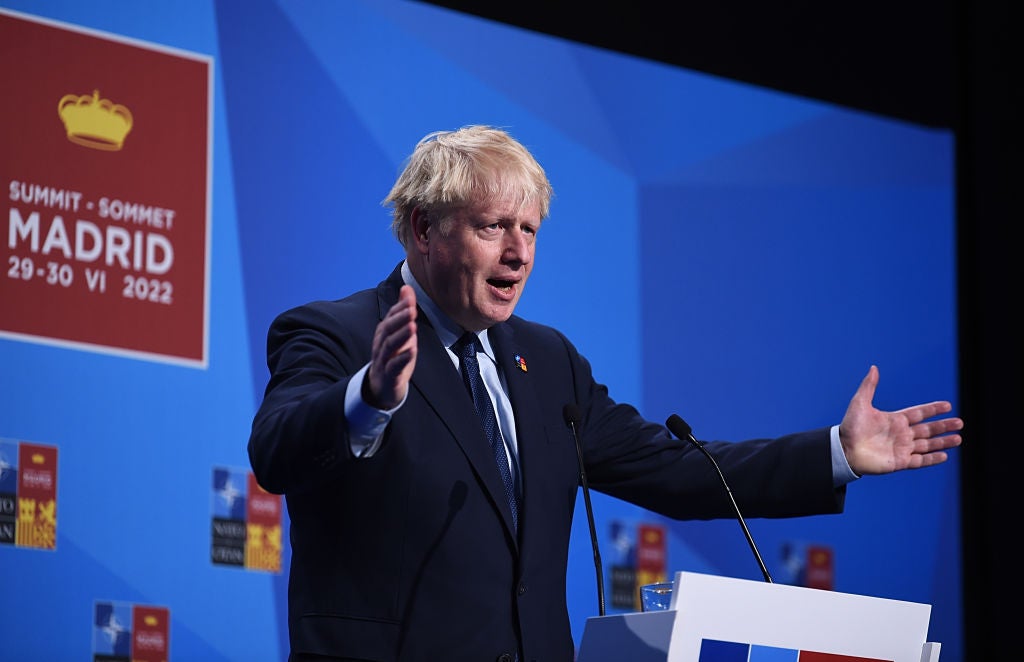On 30 June, British Prime Minister Boris Johnson – who has since resigned but remains in office – announced at a Nato summit in Madrid, Spain, that the UK will provide another £1bn in support for weapons and equipment to Ukraine. This almost doubles total UK military support since the start of Russia’s invasion earlier this year to £2.3bn.
In a tweet following Johnson’s announcement, Kwasi Kwarteng, Secretary of State for Business, Energy and Industrial Strategy (BEIS), said part of the “vital” aid is coming from the climate budget.
“My Department has contributed to the effort by surrendering climate finance and foreign aid underspends,” Kwarteng tweeted.

Energy Monitor reached out to the BEIS about how much it is contributing, but the department refused to comment, saying it has “nothing further to add on this at the moment”.
To the Independent, the BEIS did reveal that the underspend is from the UK’s International Climate Finance programme and Official Development Assistance (ODA). The military aid is further being financed by the underspend of other departments across the UK government, plus £95m from the Scottish and Welsh government budgets.
The reallocation comes as developed countries like the UK are still failing to live up to their pledge to jointly provide $100bn a year in climate finance to developing countries. News of the reallocation came just a week after humanitarian organisation CARE released a new report revealing that most of the climate finance reported by rich countries is taken from the aid budget for poor countries, instead of providing additional funding.
“It is quite shocking to see that the world’s leading nations do not care about their international commitments to support climate and development in poor countries,” said John Nordbo, the report's author, in a press release. “Instead of being the backbone of global governance, these countries, in reality, undermine international cooperation and create mistrust in the rest of the world.”
The study found that only 6% of the climate finance between 2011 and 2018 was “new and additional” to the official UN commitment for rich countries to provide 0.7% of gross national income (GNI) in ODA. While the UK did better than most – ranking sixth among 23 – it still provided only a small amount of climate finance on top of the 0.7% ODA pledge.
The UK proudly calls itself a “leader on climate change”, both domestically and internationally. The country hosted COP26, where a big priority was to discuss how rich countries can aid poorer countries in the battle against climate change.
Yet the UK has been slow to match its mouth with money, says think tank the Overseas Development Institute (ODI). According to the ODI, the UK has historically underspent on climate finance and it was “highly likely” the country would not have met its £5.8bn commitment between 2016 and 2021. Moreover, while the UK doubled this to £11.6bn between 2021 and 2026, the government also announced last year that it would lower its ODA target to 0.5% of GNI, citing the economic impact of the Covid-19 pandemic.
Further research from the ODI shows the UK is one of five countries primarily responsible for not meeting the $100bn-a-year pledge made by developed nations back in 2009. The UK fell short of its ‘fair’ share by more than $2.5bn in 2020.
Finance and the Ukraine War are already casting a shadow over the next round of international climate talks, COP27, in Egypt this November.



